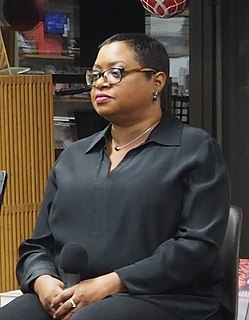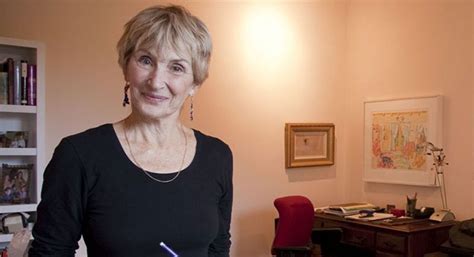A Quote by Jhumpa Lahiri
She has given birth to vagabonds. She is the keeper of all these names and numbers now, numbers she once knew by heart, numbers and addresses her children no longer remember.
Related Quotes
Once upon a time, there was a girl named Grace Brisbane. There was nothing particularly special about her, except that she was good with numbers, and very good at lying, and she made her home in between the pages of books. She loved all the wolves behind her house, but she love one of them most of all.
We live in a digital world where all is available at the touch of a screen. Money has been simplified, changed subtly over time from tangible bills to numbers in cyberspace. Cash is no longer in a cloth bag; it's numbers on a screen. Numbers that can be manipulated and modified. If you run out of numbers, you can just buy some more, right?
A woman is often measured by the things she cannot control. She is measured by the way her body curves or doesn't curve, by where she is flat or straight or round. She is measured by 36-24-36 and inches and ages and numbers, by all the outside things that don’t ever add up to who she is on the inside. And so if a woman is to be measured, let her be measured by the things she can control, by who she is and who she is trying to become. Because as every woman knows, measurements are only statistics... and STATISTICS LIE.
Sophie has a gift," she said. "She has the Sight. She can see what others do not. In her old life she often wondered if she was mad. Now she knows that she is not mad but special. There, she was only a parlor maid, who would likely have lost her position once her looks had faded. Now she is a valued member of our household, a gifted girl with much to contribute.
When I looked at [Fannie Lou] Hamer and that speech it seemed to me that she had to be the bravest woman ever, to come before that body and to assert her rights, when she knew that she was going lose that battle. But she did it anyway, because she knew she was speaking not just for herself and for that day, but for me, and for all the other young women who were coming behind her. She didn't know our names, but she was working for us. I find that incredibly empowering.
Her life was beginning to make sense again, although she couldn’t say she was enjoying it. But her mind was clear, and her heart was not constantly as heavy. Only when she thought about him. But she knew that in time, she’d survive it. She had done it before and would again. Eventually the heart repairs.
He stepped toward her, and her heart just ached from it. His face was so handsome, and so dear, and so perfectly wonderfully familiar. She knew the slope of his cheeks, and the exact shade of his eys, brownish near the iris, melting into green at the edge. And his mouth-she knew that mouth, the look of it, the feel of it. She knew his smile, and she knew his frown, and she knew- she knew far to much.
There were many words that you could not stand to hear and finally only the names of places had dignity. Certain numbers were the same way and certain dates and these with the names of the places were all you could say and have them mean anything. Abstract words such as glory, honor, courage, or hallow were obscene beside the concrete names of villages, the numbers of roads, the names of rivers, the numbers of regiments and the dates.
She was humbled, she was grieved; she repented, though she hardly knew of what. She became jealous of his esteem, when she could no longer hope to be benefited by it. She wanted to hear of him, when there seemed the least chance of gaining intelligence. She was convinced that she could have been happy with him, when it was no longer likely they should meet.
































